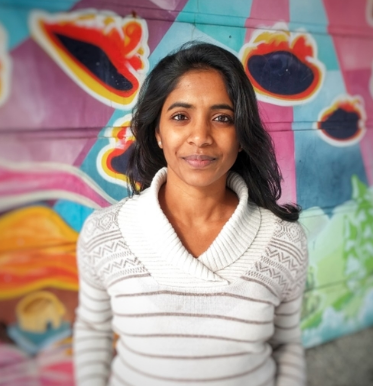You know that helpless, hopeless, failure feeling? It’s tough to pull yourself out of it right away. There is no cure to get you out of that crappy feeling after you come out of a horrible interview.
Everyone has, or will have this experience. Here’s my story.
Earlier this year, during the summer, I had landed, what I considered, an interview of a lifetime. It was for an Epidemiologist consultant position with the World Health Organization’s Regional Office for Africa. I had prepared my CV and Expression of Interest Letter with much care and excitement, in anticipation of an interview. When I heard back that my application was moving further, and that the managers wanted to have an informal discussion with me, I almost couldn’t believe it – I was one step closer to working with the WHO! I had even convinced myself that I would be fine moving to a continent I had never been to before, in order to take my first step into global health, and achieving my next public health milestone.
In the middle of a very busy month (I was leaving to travel for a month around the same time), I struggled to find a time to do this interview (the proposed dates fell during the time I would be in transit). Unexpectedly, overnight, the interview date and time was set for the next day; we had managed to find a time that would work for both parties. The interview was set to be the day before I left on my travels.
The next day arrived. I printed my documents for the call (CV and the letter I had written), got myself into a quiet room and watched the clock as it struck the hour. My phone finally went off, it looked like a long-distance number, and I picked it up….on the other side was a lot of feedback noise. I could barely make out what was being said. I hung up, and waited again. The phone rang again, but this time there was silence on the other end, and finally a gentle “hello”…we had connected! The next 30 minutes flew by; the two managers asked me questions about my experiences and skills. The interview wrapped up and we said our goodbyes.
Phew, it was finally done….
….unfortunately, there was no feeling of relief. In fact, I felt so horrible.
I completed the interview with a lot of disappointment. I was so unprepared and my responses to some of the questions were a blunt “no”, with nothing more following it, and not well thought out. I knew at that moment that I had a very slim chance of landing this job (although for some odd reason I held onto a very tiny drop of hope). That day, I felt miserable thinking back at how the interview unfolded.
The official rejection came 2.5 months from the date I had interviewed for the job. Between the interview and receiving the official email, I reflected a lot on my experience and this interview. Although it was very difficult to overcome the disappointment (I still am), I managed to learn a few lessons, and I share them with you below:
RELATIONSHIPS are important
I learned the true value of building a two-way relationship with this experience. I knew networking was key to career advancement; and I also knew “it’s about who you know”. I knew these were very important in theory, but it was the first time I had seen it play out in my own life. I landed this interview because of the relationship I had with my mentor (an old manager of mine who I had kept in touch with over the past 4 years). He had sent me the job posting, and connected me with the hiring manager (an old colleague of his). I had exchanged a number of emails with the hiring manager before being convinced to put an application in. I am pretty convinced that I had landed this interview because of that connection. You may not land a job with a connection, but you will get one step closer.
PREPARE, regardless of the type of call
I beat myself up till this day because I had not prepared for this interview the same way I do for other interviews. I don’t know if it was because the email had requested for an “informal discussion”, or because I was so busy with planning my travels. Regardless of the reason, neither of these were great excuses as to why I didn’t prepare. I reflect back at some of the questions where I responded back with a blunt “no”and wished I had followed it up with more detail. For example, how I could still do the job even though I did not have direct experience. If I could do this all over again, I would have prepared/practiced the same way I do for other “formal” interviews.
SHARE your journey, failures, and everything along the way (not just the achievements)
Once I received the official word that I had not gotten the job, I shared my #interviewfails with colleagues and friends. I hesitated, but I still did it. This opened up a lot more opportunities for me. A few colleagues shared other avenues I could pursue to get my foot in the door with global health. They shared resources and job sites I had never considered or come across. I find that people, myself included, often don’t share their interview failures (whether it’s fear of being judged or to avoid competition). I realised that by sharing, you let peers know about your interests in advancing your career. And in the most unconscious way, your peers/colleagues will think about you the next time they come across an opportunity. Again, you may not land a job with that, but you will get one step closer.
FUEL yourself using the disappointment, in order to keep moving forward
As much as it is disappointing to fail, using it as fuel to keep on going is better than sitting around and sulking,like I did for a few weeks. Once I pulled out of that “sulking” phase, I applied to more jobs, and went the extra mile to prepare for my interviews. I practiced days in advance by writing out potential questions, and responding to them in different ways. I came out of two interviews in the last two months impressed with myself, and feeling confident. It’s ok to feel disappointed, but dwelling in your mistakes doesn’t allow you to move forward. You need to move on to achieve your goals!
#InterviewFails are common. Getting out of the disappointment phase is difficult. I invite you to reflect on lessons you’ve learned throughout your experiences, and use them to fuel your career forward. Best of luck!






